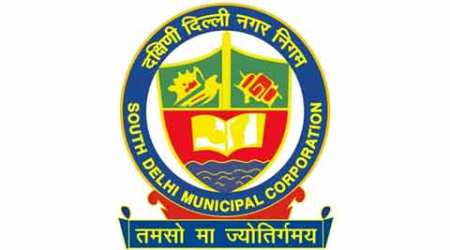 Delhi Lt. Governor Anil Baijal flagging off the new fleet of mobile transfer stations & auto tippers for scientific disposal of Municipal Solid Waste based on MSW Rule-2016 at ,Raj Niwas in New Delhi on Sunday.Express photo by Prem Nath Pandey
Delhi Lt. Governor Anil Baijal flagging off the new fleet of mobile transfer stations & auto tippers for scientific disposal of Municipal Solid Waste based on MSW Rule-2016 at ,Raj Niwas in New Delhi on Sunday.Express photo by Prem Nath Pandey
Taking a step towards the implementation of Solid Waste Management Rules (SWM), 2016, the South Delhi Municipal Corporation (SDMC) has introduced a fleet of Mobile Transfer Stations (MTS) to its sanitation infrastructure.
With no user charge at this stage, the MTS will allow segregation of waste at source, and integrate street-level collection with transportation of municipal solid waste in the city. L-G Anil Baijal flagged off the MTS fleet from Raj Bhawan, Sunday.
The SWM Rules put the onus of segregating waste at the source. “Every waste generator shall segregate and store the waste generated in three separate streams — bio-degradable, non bio-degradable and domestic hazardous wastes — in suitable bins, and handover segregated wastes to authorised waste pickers as per the direction by local authorities from time to time,” the rules state.
Union Minister M Venkaiah Naidu is expected to launch ‘segregation of waste at source’ movement for the NCR on World Environment Day from Talkatora Indoor Stadium, Monday. The new infrastructure will, according to civic officials, help save Rs 461 crore for the SDMC over a period of eight years.
The fleet includes 30 Fix Compactor Transfer Station, 38 MTS and refuse collectors among other machinery. It will serve around 19 lakh residents in 29 wards of the west zone, which generates total solid waste of 855 MT per day. The new project is expected to achieve “zero waste” in the city with the help of public awareness campaigns.
L-G Baijal said the scientific collection, systematic segregation and compressed volume of garbage will lead to dumping of less garbage in sanitary landfills. He added that this will provide enough scope for recycling, which will be “an excellent opportunity to convert waste to wealth for the SDMC”.
SDMC commissioner P K Goel added that the mobile transfer stations are “going to bring a visible change in the primary collection, secondary storage and secondary transportation” of garbage in the capital.
